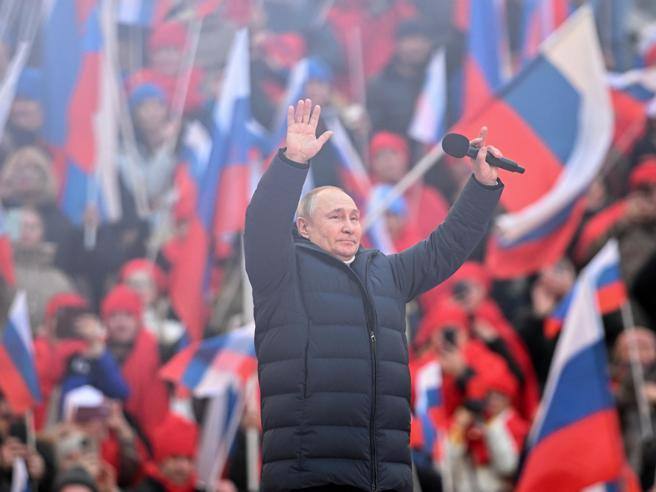Theologian Bruno Forte is convinced of this, and in general the Catholic world was extremely strict about the use of a verse from the Gospel of John in Putin’s speech yesterday: Let’s try to understand what he said
One of the horrors of war is that the holiest words are used to embellish the killings. it happened punctually yesterday by Putin when, in the middle of the show in the big stadium, he used a phrase from the Gospel of John to justify the deaths of the Russian soldiers he was sending to slaughter.
Putin said that these boys – who already seem to have fallen in seven thousand, or maybe ten thousand – are dying for their friends, that is, for the Russian brothers of Ukraine, and therefore they are dying for love, a love blessed by Christ. Everywhere, including here in Italy, there was great protest: exploitation of the gospel, distortion of its meaning, blasphemy. Those who protest have their reasons. But since there are big issues at stake, words of the gospel and the death of the 20-year-old, it is better to hold back the anger and read the words of the gospel, the quote that Putin made of it, the protest, carefully by many. Verse 13 of chapter 15 of John says that there is no greater love than this: to lay down one’s life for one’s friends.
Jesus speaking to the disciples – whom he calls friends – and speaking these words in reference to himself, who willingly accepts death for love of the salvation of mankind. Reference to this evangelical context is enough to understand Putin’s daring: But anyone who orders the occupation of a sovereign country and the bombing of cities can be expected to treat the gospel like a sack of nuts. Putin argues that Russian soldiers are giving their lives to save the Donbass Russian brethren, in a holy cause that Christ Himself would sanction. in short, in the context of the myth of Greater Russia, of Russia as the mother of many peoples, that Putin overhears these sublime words spoken by Jesus on the eve of the Passion.
It was easy to accuse him of multiple duress and blindness in this operation. For example, these words were carved on the tomb of the blessed Pino Puglisi, who was killed by the mafia in Palermo in 1993 for kidnapping young people from the clans, and Avvenire had a good game of remembering and signaling this inscription that he gave his life performing his own educational mission unarmed, except giving it while dropping machine guns from the tank, dropping bombs and firing rockets. Stricter was Jesuit multimedia Antonio Spadaro, director of Civilt Cattolica, who commented on Putinian’s sudden quote with this piercing tweet: Politics must not appropriate the language of Jesus to justify hatred. The religious rhetoric of power and blasphemous violence.
He too started from blasphemy, but went further, the theologian and archbishop of Chieti Bruno Forte: A real blasphemy. An exploitation of the gospel aimed at self-justification. It is sacrilege to quote Jesus in this way and use God to justify the evil that has been done. It touches the pinnacle of immorality and even madness. The Archbishop of Naples, Domenico Battaglia, had shown a very different familiarity with Jesus’ words – than Putin’s – in a prayer titled “Jesus forgive us the war,” which he appropriated and received on Wednesday from the pope at the general audience had read. In this text, the archbishop had conjured up the Russian soldiers whom Putin threw into the Ukrainian slaughter: Lord Jesus, sent to the front at the age of twenty, have mercy on us.
March 19, 2022 (Change March 19, 2022 | 16:02)
© REPRODUCTION RESERVED

